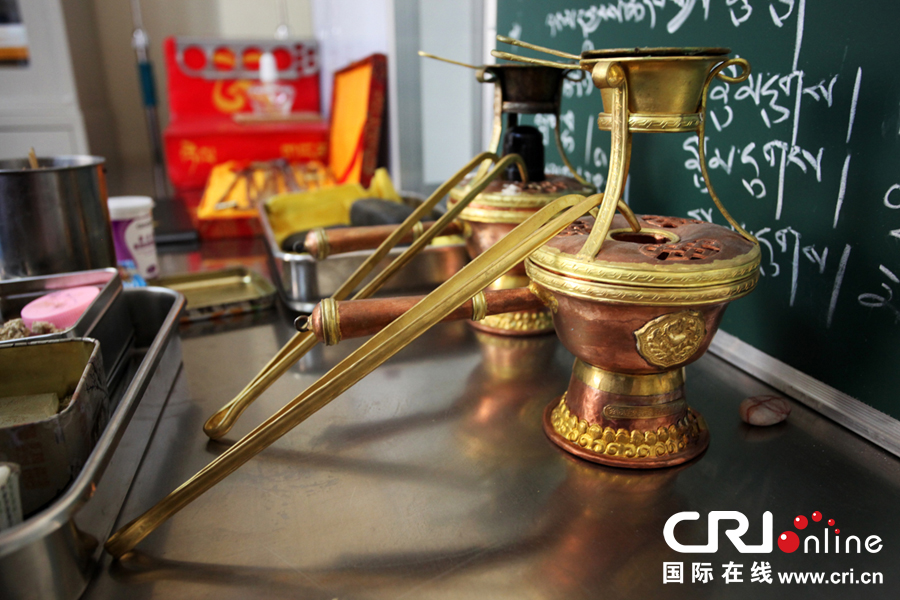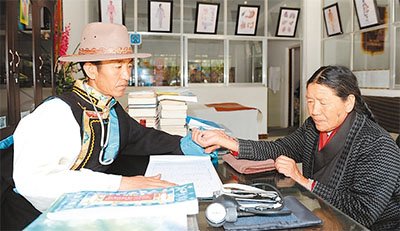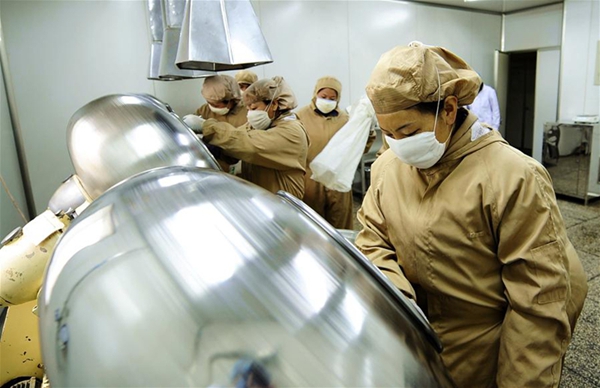Master-apprentice relationship helps Tibetan medicines stay unique
It is a well known fact that mercury is poisonous, but Tibetan doctors have invented a way to process the liquid to use it as a medical treatment.
The technique, indicative of the quintessential skill of the thousand-year old Tibetan pharmacy, remains under wraps to the common man, as it is only passed down by masters to their chosen apprentices.
Even today there are only a few people who have the skills to produce rare drugs for the treatment of cerebral hemorrhage, leprosy, gout and other diseases.
Dampa Wangchug, president with Xungba Zachu pharmaceutical factory of Tibetan medicine in the regional capital Lhasa , said that the process is safe and no one has ever been poisoned.
With the processing done in a dark room for days, the pharmacists must stop every one hour to drink Chang or highland barley wine to sterilize their bodies. The masks and clothes they wear have been fully soaked in Chang to protect them as they undertake their work, while during the period they only eat raw mutton and beef and garlic, according to Dampa Wangchug.
"When quicksilver turns into black granules and floats on water, it is completely harmless and suitable for human consumption," he said.
The master-apprentice approach is very important to Tibet's modern medical education, as many processes can not be learned from books or lectures, said Yeshe Yangzong, vice president of a Tibetan Hospital in Lhasa.
Since 2012, the didactic approach has been included in postdoctoral education, according to Tsetop, deputy chief of the hospital's medical affairs department.
He said that 20 apprentices are undertaking apprenticeships at the hospital, and, since 1990, 48 have completed their studies. They are all engaged in teaching as well as practising medicine in smaller hospitals elsewhere.
The hospital also started a project called the Oral history of Famous Tibetan Medical Masters last year to collect the experiences of more than 170 senior Tibetan doctors.
Later, their lectures will be used in education or on-the-job training, said Yeshe Yangzong.
Your Comment
Name E-mailRelated News
-
;
-
-

-
Tibetan medicine’s adventure along the Silk Road(I)
To understand what a “vast world” is, one must first set foot on the Qinghai-Tibet Plateau.
-
-
-

-
Qinghai innovates Tibetan medicine inheritance
Basic coverage for Tibetan clinics has already become indispensable in the regard of sanitation services in Tibetan inhabited areas of the Qinghai Province.
-
-
-

-
Tibetan medicine touted as a hospital turns 100
To celebrate the 100th anniversary of a Tibetan hospital, more than 400 scholars and experts from home and abroad gathered in Lhasa, capital of Southwest China's Tibet autonomous region, to attend the first international forum on traditional Tibetan medicine.
-
Based in Lhasa, Tibet Vista is a Tibet travel agency that specialized in Tibet permit, and Tibet tours for both private and group travelers at a local price!
•4 Days Lhasa City Group Tour from USD 460 •8 Days Everest Base Camp Group Tour from USD 850 •15 Days Mt.Kailash Group Tour from USD 1780 •2016 Tibet Train Tours from Beijing, Shanghai, Chengdu, Xining,etc










